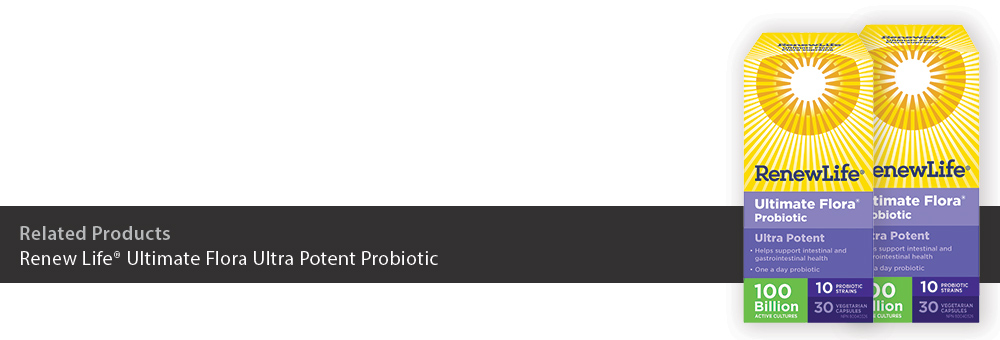Feeding Your Microbiome After Antibiotic Use
In 2017 alone, Canadians filled over 24 million antibiotic prescriptions.[1] That’s a lot of antibiotics! While broad-spectrum antibiotics target a wide range of bacteria, narrow-spectrum antibiotics target only a few types. When the cause of an infection is unknown broad-spectrum antibiotics tend to be used and can have several impacts on gut health, including:
- Reducing microbial diversity in the gut.[2],[3],[4]
- Reducing protective species such as Bifidobacterium.[2],[3]
- Promoting the colonization of opportunistic pathogens such as Clostridium difficile that can cause antibiotic-associated diarrhea.[5]
Pathogenic bacteria can colonize when our protective gut bacteria are diminished during antibiotic use. Resident microbes in a healthy gut can help protect against infections and other pathologies by directly inhibiting invading microbes and by arranging appropriate immune responses.[6]
After an antibiotic course, recovery of the gut microbiome can take some time. In general, after short-term antibiotic use (between five and ten days), studies have observed it can take at least one to two months for most bacterial groups to recover to pre-antibiotic levels. However, these studies have also shown that even after two to four years, some bacterial groups do not recover completely and antibacterial resistance genes can also persist at increased levels for at least one to two years following antibiotic use. Therefore, even a short course of antibiotics can have long-term effects on the gut microbiome.[7]
Help Your Gut Get Back on Track
Renew Life’s® multi-strain probiotic formulas may help with the effects of antibiotic use and could promote intestinal and gastrointestinal health. Ultimate Flora® Ultra Potent is a once daily probiotic that contains 100 billion live bacterial cultures per serving with a blend of 10 strains. 50 billion Bifidobacteria and 50 billion Lactobacilli may help to replenish friendly gut bacteria following antibiotic use. Delayed-release capsules provide protection through the harsh stomach environment to help the bacteria get to where they need to go. With quality, purity and potency guaranteed until date of expiry, Renew Life® stands behind the quality and efficacy of their premium probiotics. You can try any Renew Life® probiotic risk free for 60 days.*
Feed Your Microbiome
Good nutrition goes a long way to improving and supporting good gut health. Feed your gut microbiome foods that will help your good resident bacteria grow back. Look for foods that are high in fibre and plant polyphenols such as fruits, vegetables, legumes, nuts and whole grains.[8]
By Caroline Farquhar RHN, EMP, BA – National Training Manager for Renew Life Canada
References:
[1] Tam, T. (2019). Antibiotic use in Canada: Preserving antibiotics now and in the future. Available: https://www.canada.ca/en/public-health/corporate/publications/chief-public-health-officer-reports-state-public-health-canada/preserving-antibiotics/antibiotic-use.html. Last accessed 11 dec 20.
[2] Rashid, M. et al. (2015). Determining the Long-term Effect of Antibiotic Administration on the Human Normal Intestinal Microbiota Using Culture and Pyrosequencing Methods. Available: https://academic.oup.com/cid/article/60/suppl_2/S77/379378. Last accessed 14 Dec 20.
[3] Korpela, K. et al. (2016). Intestinal microbiome is related to lifetime antibiotic use in Finnish pre-school children. Available: https://www.nature.com/articles/ncomms10410#Sec2. Last accessed 14 Dec 20.
[4] Zaura, E. et al. (2015). Same Exposure but Two Radically Different Responses to Antibiotics: Resilience of the Salivary Microbiome versus Long-Term Microbial Shifts in Feces. Available: https://mbio.asm.org/content/6/6/e01693-15. Last accessed 14 Dec 20.
[5] Stewardson, A. et al. (2015). Collateral damage from oral ciprofloxacin versus nitrofurantoin in outpatients with urinary tract infections: a culture-free analysis of gut microbiota. Available: https://www.sciencedirect.com/science/article/pii/S1198743X14001025?via%3Dihub. Last accessed 14 Dec 20.
[6] Becattini, S. et al. (2016). Antibiotic-Induced Changes in the Intestinal Microbiota and Disease. Available: https://www.sciencedirect.com/science/article/abs/pii/S1471491416300077?via%3Dihub. Last accessed 14 Dec 20.
[7] Pribyl, A. (2018). The effect of antibiotics on your gut microbiome. Available: https://www.microba.com/blog/the-effect-of-antibiotics-on-your-gut-microbiome/. Last accessed 14 Dec 20.
[8] Singh, R.K. et al. (2017). Influence of diet on the gut microbiome and implications for human health. Available: https://translational-medicine.biomedcentral.com/articles/10.1186/s12967-017-1175-y. Last accessed 14 Dec 20.
*Purchase risk free (less tax, shipping & handling). For information, visit renewlife.ca/customer-service
